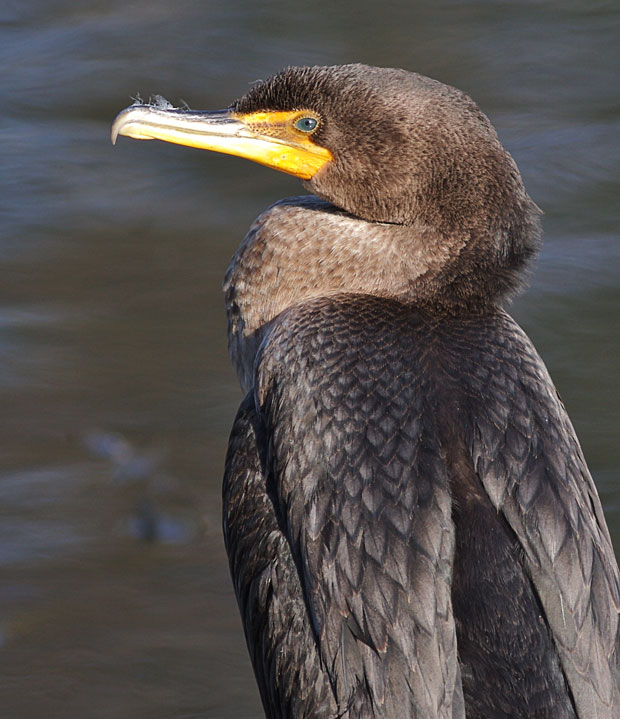I’ll have to admit that as I got further and further into The Taos of Abundance I discovered that it’s not really the book I thought I was buying. I thought I was buying a book that would offer a different perspective on “consumption,” a sort of how-to-live-life with a different perspective. It is that, but it’s also something more.
In fact, I like the chapter called “The Unity of the Taos” enough that I started checking out the book on line. First I went to Boldt’s web site, and wasn’t particularly attracted by what I found there, as he seems to be licensing people to teach a series of classes based on his ideas. I also found his book discussed on several New Age sites, which throws up many more warning signals.
Gurus, particularly unknown, “New Age” gurus make me extremely nervous. By nature I’m not a “joiner.” That said, I liked an awful lot of what Boldt had to say in this chapter because he drew examples from Buddhism and Taoism that allowed me to better understand some concepts that I’ve encountered in my wide-ranging reading but haven’t been able to integrate with other ideas I’ve read.
More importantly, at least at this point I tend to agree with most of what he has to say, as summarized at the end of this rather long, complicated chapter:
The key to an “enlightened” approach is to be found, not in the literal renunciation of money or things, but in psychological disengagement from the concept of ownership of them. Just as I may employ an ego to function in society, without believing that I ultimately “am” one, so I may employ the things in my care without believing that I, in fact, own them. Even as we may employ an ego identity for purposes of social engagement, so we can use money and things for purposes of creative action.
The critical question and one that warrants continued awareness and self-examination is: What is the motivation behind my desire to acquire money and the things that come with it? The motivation behind any action determines its ultimate effect, which is to say, whether that action will serve to free or enslave us. With respect to the acquisition and spending of money, there are two motivations that bring happiness: pure enjoyment and the desire to serve or help others.
Now, I’m not at all sure that a true Taoist would agree that it’s not necessary to have a “ literal renunciation of money or things,” since many of them seemed to do precisely that, but I’d like to HOPE that that’s true, or it’s too late for me to ever reach an “enlightened approach.”
I also like to think that Boldt is also correct when he argues that there are two motivations that bring happiness. I’ve certainly found the first to be true:
Pure Enjoyment: By pure enjoyment we mean, as Leonardo da Vinci put it, “to love a thing for its own sake and no other reason.” What makes enjoyment less than pure is “the other reasons,” in others words, ulterior motives. Will Rogers described just such a motive when he said, “Too many people spend money they haven’t earned, to buy things they don’t want, to impress people they don’t like.” On the other hand, any true enjoyment serves to make us feel more deeply connected with everything else.
I like to think that I’ve learned how to do this as I’ve matured though it’s certainly not the way I started out in life. But my experiences have led me in this direction. Though I’ll have to admit that I appreciate it when other’s praise my photos, I take photos because I love taking them. It’s been a constant in my life since I purchased my first Minolta SLR while on duty in Vietnam. Most of my photos have never been seen by anyone but me, and never will be. In other words, I’d be taking photos just like I am even I didn’t have this web page, though probably not as often. As I said when I began blogging, having an audience probably helps me to do better job of what I’d be doing anyway, whether it’s reading poetry or taking photographs.
If you’d told me when I first went to college that I would become a caseworker and then a teacher, I could have only laughed. No, it wasn’t until Vietnam that I decided I wanted to do something more in my life than just make money, which explains why I turned down the Bank of America training and the job at Dun and Bradstreet.
I’m probably more selfish after 30 years of teaching and less willing to personally go out and volunteer, but I continue to contribute to others. I believe my life has been greatly enriched by helping others, that I’ve gotten more back than I gave:
Service to Others: The other motive that brings happiness is the desire to benefit others. In the Hua Hu Ching, Lao Tzu describes it as one of the four cardinal virtues. “The fourth [virtue) is supportiveness; this manifests as service to others without expectation of reward.” This, as he put it, is not an external dogma, but a part of your original nature.
I’m a bit of a loner in nature, an INTP. Perhaps that explains why I was quite impressed with the last sentence in this chapter:
The test of any desire is: Does it serve to make you feel more isolated or more connected with all of life?
Like this:
Like Loading...



